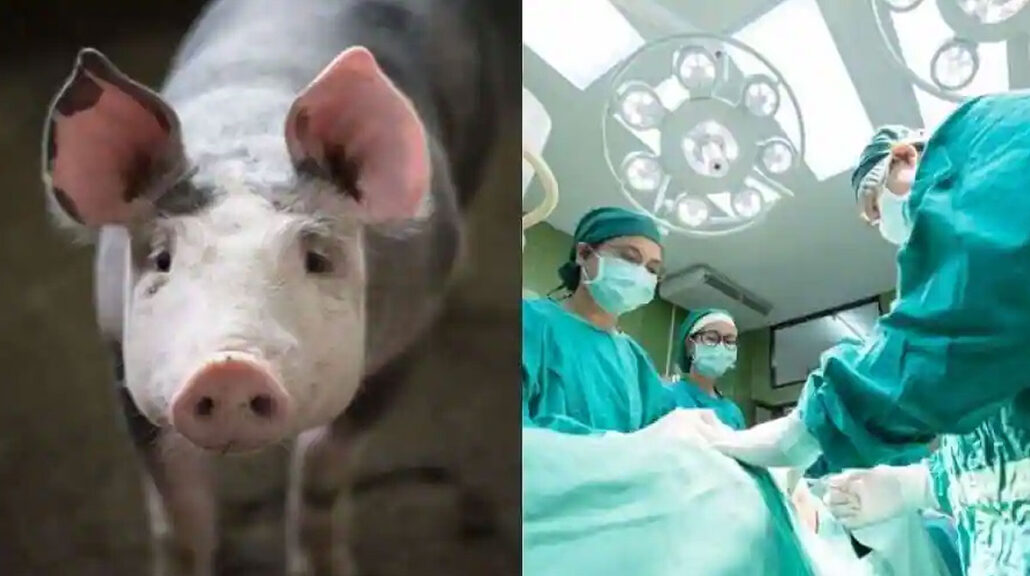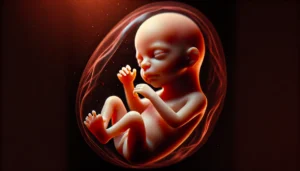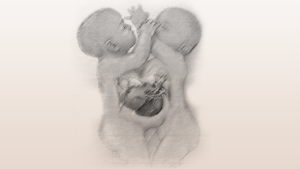Question:
Many attempts have been made to transplant organs from animals to humans, not only for the sake of research but also because in some cases it is the only chance to save a person’s life. In these cases, is it morally licit? Are there any limits?
Response:
It is true that, in the last few years, experiments involving xenotransplantation (interspecific transplants from animals to humans) have been occurring with more and more frequency. There are cases where the human body cannot receive human organs, but it could receive from some animals.[1]
The phenomenon of xenotransplantation first became famous in 1984 with the case of a heart transplant from a baby ape to a human baby girl (Baby Fae – she lived for three days). Public interest in these types of cases resurfaced again in 1992 with another ape-to-man transplant in Pittsburg. The patient survived the operation well, but he died a few weeks later due to cerebral hemorrhage caused by the immune-suppressing drugs that he was taking to prevent his body from rejecting the foreign organ. This question is now being raised with more and more frequency for the following reason: the main problem, from a technical point of view, is rejection of the foreign organ by the body, and when it comes to human organs this problem has already been partly offset by drugs; now, the rejection is stronger when the organ comes from another animal species; but, nowadays, researchers are experimenting by inserting specific human genes into the animal DNA so as to prevent the human immune system from recognizing the animal organs as foreign. If it is successful, this process opens the door to many interspecific transplants.
Can we set any limits in respect to all this?
The ethical problem arises primarily because of the current uncertainty of success and the risk of rejection, which till now has been well founded, in such a way that a great part of this type of intervention, being in a purely experimental and highly risky phase, makes it ethically impractical with human beings.
As for the very essence of this type of transplant, a moral assessment cannot be given, but as Pius XII said, “it must be distinguished according to the cases and to see which tissue or which organ is to be transplanted”. In principle, the introduction of an animal organ (extending to a purely mechanical organ such as an artificial heart) in the body of a human being does not represent – as Pius XII himself stated at the time – bigger problems from the moral point of view, as long as they are treating executive bodies and are not linked to personal identity. The principle philosophy that governs this is given by St. Thomas Aquinas: imperfect beings (plants and animals) exist for the good of the more perfect: “In the order of things, those imperfect beings exist for the sake of the more perfect beings…,those, such as the plants, are only living for the common service of all animals, and the animals are at the service of man…Therefore, to kill plants for the sake of the animals and the animals for the sake of man is licit and this has all been ordained by Divine Providence.” [2]
For this reason, generally speaking, it should be said that there are no moral problems with regard to this type of transplant in respect to organs or tissues not involving a conflict in personal identity of the receiver and its descendants; but it must, in such cases, take into account (and not underestimate) the possible psychological conflict. On the other hand, any transplant which affects the personal identity of the recipient or his descendants is immoral: “it cannot be said that all tissue transplantation (biologically possible) between individuals of different species is morally condemnable; but it is also not true that all biologically possible heterogeneous transplantation is prohibited or cannot raise objection. It is necessary to distinguish the concrete specific case and examine which organ or tissue is to be transplanted. Transplantation of the sexual glands of animals to man must be rejected as immoral; on the contrary, cornea transplantation of a non-human organism to a human organism would not involve any moral difficulty if biologically possible and indicated” [3]
In turn, Pope John Paul II has said, “With regard to so-called xenotransplantation, that is, transplants of organs from other animal species…Pope Pius XII…stated in principle that the licitness of a xenotransplantation requires, on the one hand, that the transplanted organ does not undermine the integrity of the psychological or genetic identity of the person who receives it; and, on the other hand, that there is the proven biological possibility of successfully performing that transplantation, without exposing the recipient to excessive risk.”[4]
Bibliography
[1] That is, for example, a person sick with Hepatitis-B cannot receive a transplant of a human liver because the illness would be immediately transmitted. But there is no problem with transplanting the liver of certain species of apes since they are resistant to Hepatitis-B.
[2] St. Thomas Aquinas, Summa Theologica, II-II, 64, 1; cite St. Thomas Gn 1,29ss y Gn 9,3.
[3] Pío XII, Alocución a la Asociación Italiana de Donadores de Córnea, 13 de mayo de 1956; en: Pío XII y las Ciencias Médicas, op. cit., p. 244
[4] John Paull II, THE 18th INTERNATIONAL CONGRESS OF THE TRANSPLANTATION SOCIETY, 29 of August of 2000.
Original Post: Here
Other Post: What about the cloning human organs?















